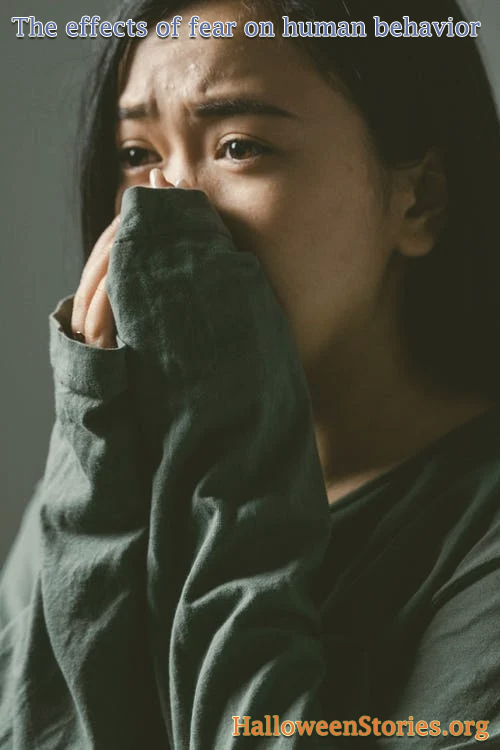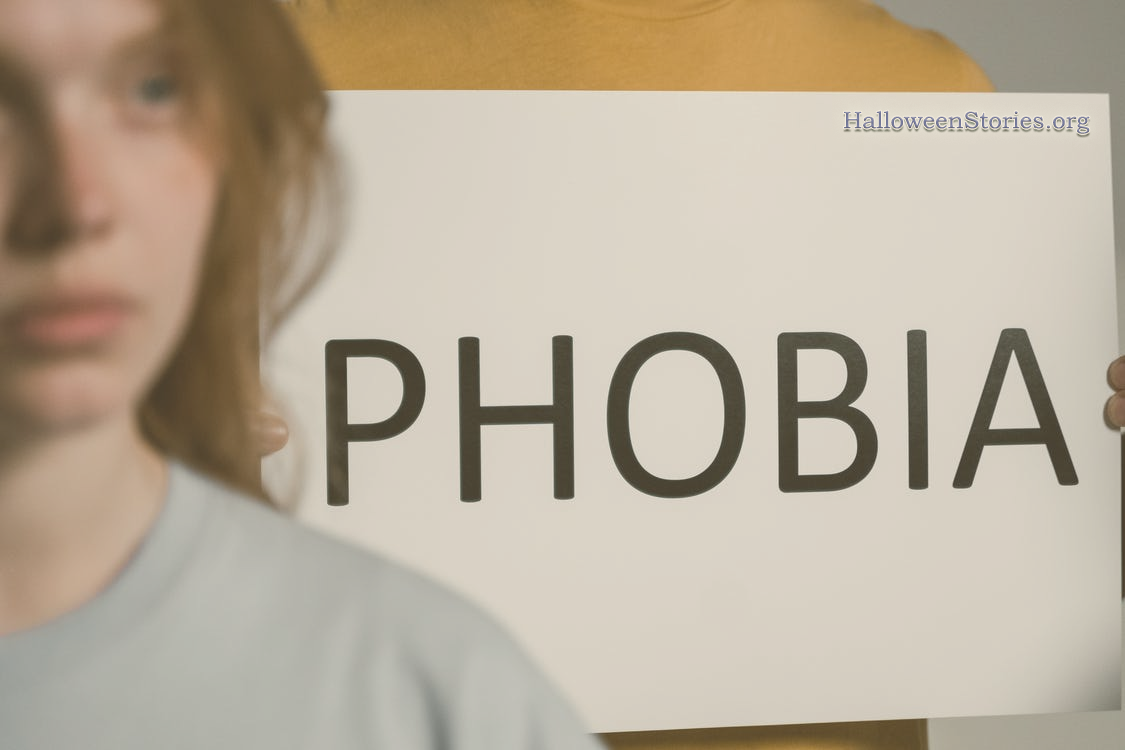Feeling fearful can sometimes be unavoidable, but what exactly happens when we’re faced with danger? How can we express fear properly? Why do we have such intense emotions as anger, happiness, sadness or even fear? And why would we want to avoid things that make us feel good like love, sex or intimacy?
The effects on Fear on Human Behavior

These questions may seem impossible to answer without getting into complicated psychological theories, however there is one thing every psychologist will agree upon — fear plays a crucial part not only in everyday life but also in mental health disorders and physical illnesses.
We’ve evolved to live in dangerous environments filled with threats ranging from predators to infections. Our bodies respond automatically by creating strong negative reactions in order to protect ourselves against possible harm. In other words, fear helps us survive. But sometimes the reaction gets out of hand causing problems. Expressing fear properly can help.
For example, when dealing with a scary situation, people often freeze up and become unable to move. This response makes sense because if we were constantly running away each time something was chasing us, we’d never get anything done! However, while our body’s natural responses are necessary to keep us safe, they are also capable of going too far and becoming problematic.
What role does fear play in relation to phobias
In fact, most of the world’s population suffers from some kind of fear related issue. According to research, about 50 percent of Americans suffer from specific phobia. There are hundreds of different types of phobias including agoraphobia (fear of open places), claustrophobia (fear of enclosed spaces), acroterionphobia (fear of heights) and many more.

Phobias are classified under a range of disorders including generalized anxiety disorder, panic attacks, obsessive-compulsive disorder and post-traumatic stress disorder. Unfortunately, these conditions are usually very difficult to treat due to their complexity. The reason behind this is that unlike simple feelings like joy, grief or embarrassment which tend to pass quickly within minutes, fear lasts much longer than those positive emotions. It doesn’t matter whether someone feels happy after seeing his favorite movie or sad over losing her beloved pet, both emotional experiences fade away quickly compared to those associated with fearful emotions. On top of that, many patients find treatment methods ineffective because they don’t address the root cause of their condition.
So, what exactly is fear? Is there a solution for overcoming it? Can you express fear in a healthy manner? How can it be controlled? Does everyone who faces a frightening situation end up developing long term anxieties? Find answers below.
The stages of fear
According to Dr. Daniel Pine, director of the University of Miami School of Medicine’s Center for Movement Disorders Research, there are three basic stages of fear: normal, acute and chronic. While the first stage refers to healthy physiological reactions caused by external stimuli, the second type involves extreme distress and avoidance behaviors triggered by internal factors such as thoughts, memories and imagination. The third and final phase starts appearing once the original problem becomes persistent and continues despite attempts to stop its progression.
Chronic fear affects 1 million American adults annually and includes symptoms such as low self-esteem, depression, insomnia and various forms of pain syndromes. Most cases of chronic fear start occurring during childhood although adult trauma could play a major role in triggering certain phobias later on in life.
The origin of fear
Recognizing the signs of acute fear can be simple, there are a few ways. Symptoms include rapid heartbeat, dry mouth, sweating and shortness of breath. When fear turns into chronic state, it typically develops gradually over years and manifests itself through constant worrying, rumination, helplessness, irritability and despair among others.
Why do we experience fear?
Scientists still aren’t sure where exactly fear originates but psychologists believe that it stems from primitive parts of our brain called amygdala. These areas trigger fight-flight reflexes responsible for releasing adrenaline into bloodstream leading to increased heart rate and blood pressure. They also create unpleasant sensations via the thalamus, hypothalamus and periaqueductal gray area located right above the spinal cord. Together, these mechanisms allow animals to detect potential dangers and prepare themselves accordingly. Humans use similar systems but also add another component known as prefrontal cortex, which allows us to think rationally before acting. As soon as PFC detects imminent threat, it activates higher functions like speech production, thinking and reasoning.
Can fear be a good thing?
Acute fear isn’t always bad though. We need it in moments of emergency to alert us to immediate danger. Without this mechanism, our brains might begin associating fear with everything around us. A person walking down a dark street alone at night might suddenly imagine being attacked so he begins sprinting in hopes of reaching safety faster. Or a woman driving home late at night might see a stranger lurking nearby trying to catch sight of her license plate number. These examples help delineate just how simple it can be for our brain to distinguish real threats from imagined ones. Otherwise, fearing shadows won’t work well enough to save lives.
However, excessive amounts of fear are unhealthy since they limit a person’s ability to handle stressful situations. If you spend more hours worried about potential threats instead of focusing on actual challenges ahead, you’ll eventually lose motivation and energy needed to deal with daily tasks. Some studies show that prolonged exposure to high levels of cortisol, the main hormone responsible for keeping our metabolism stable, leads to obesity and poor sleep quality. So, if your job requires staying awake all day and working overtime, try avoiding dwelling on your recent mistakes until tomorrow morning.
What are the effects of fear on humans?
While experiencing fear is essential, having difficulty controlling it can lead to serious consequences. People who face frequent terrifying events display lower tolerance for risk taking and thus fail to achieve goals set forth in front of them. At the same time, excessive fear creates additional stress which can negatively impact overall mood and performance. Overwhelming worry can result in sleepless nights and inability to concentrate. It also disrupts eating habits and proper hygiene resulting in weight gain.
Acute episodes of fear can even force people to withdraw completely from social activities or family interactions. Furthermore, those struggling with chronic fear are more likely to develop depression, substance abuse and suicidal tendencies.
Other side effects include reduced productivity, diminished creativity, lowered immune system function and compromised cardiovascular health. All of these issues together contribute to greater vulnerability for future medical complications.
Phobias & exaggerated fear
Most common phobias share one thing in common — exaggerated fear toward objects or surroundings. Agoraphobics, for instance, react strongly whenever leaving home unattended. Claustrophobic individuals shy away from closed rooms and narrow passages. Social phobias refer to irrational fear towards strangers, public speaking and group settings. Posttraumatic stress disorder occurs following severe terroristic event(s). While some phobias occur naturally due to genetics, others happen as a result of a traumatic incident.

Phobias can be treated using cognitive behavioral therapy combined with medications. Medications used for treating phobias include benzodiazepines, antidepressants and beta blockers. Benzodiazepines act on receptors in the central nervous system helping relieve symptoms. Antidepressants decrease activity in regions involved in processing negative information originating from the limbic system. Beta blockers reduce sympathetic tone improving relaxation and reducing muscle tension.
Cognitive behavioral therapies focus primarily on changing thought patterns and beliefs associated with phobias through education and gradual desensitization techniques. Although treatments vary depending on patient needs, results generally take months to appear. Sometimes, patients must undergo multiple sessions in order to reach full recovery.
Can you learn how to control your fears or eliminate them altogether?
One approach to manage fear relies on mindfulness meditation training. By practicing skills aimed at calming the mind and increasing awareness, you’ll better understand yourself and your own reactions. You can then choose appropriate coping strategies based on your personal preferences and build new neural pathways in your brain allowing you to cope with threatening scenarios easier.
Another option is biofeedback therapy designed specifically to combat phobias. During sessions, trained professionals monitor your vital statistics and record changes in bodily signals associated with anxiety. Afterward, participants receive feedback showing what worked best for them individually and how to improve existing abilities. Both approaches require repeated practice and dedication to reap maximum benefits. Yet, neither method guarantees instant success. Depending on severity and duration of your phobias, it can take weeks or even months to notice improvements.
Another alternative that works fast comes from hypnotherapy which focuses on modifying subconscious processes underlying your current behaviors. Hypnotists utilize guided imagery to guide clients’ minds away from triggers connected with phobias. Their goal is to replace negative associations with positive alternatives.
Is there any way out from feeling scared all the time?
Yes, there are numerous resources available to help you overcome your fears. First off, remember that most fears are perfectly reasonable. Just because somebody got freaked out by spiders doesn’t mean they’re actually allergic to bugs. Similarly, just because you had a nasty encounter with a snake doesn’t mean snakes inherently scare you. Momentarily, take a deep breath and asked yourself: Was it really a close call? Did you witness any suspicious actions?
Asking yourself those questions & following the other steps outlined in this article, can help you properly express fear & handle it in the healthiest way.
If you enjoyed this content, feel free to check out some of our other content!
